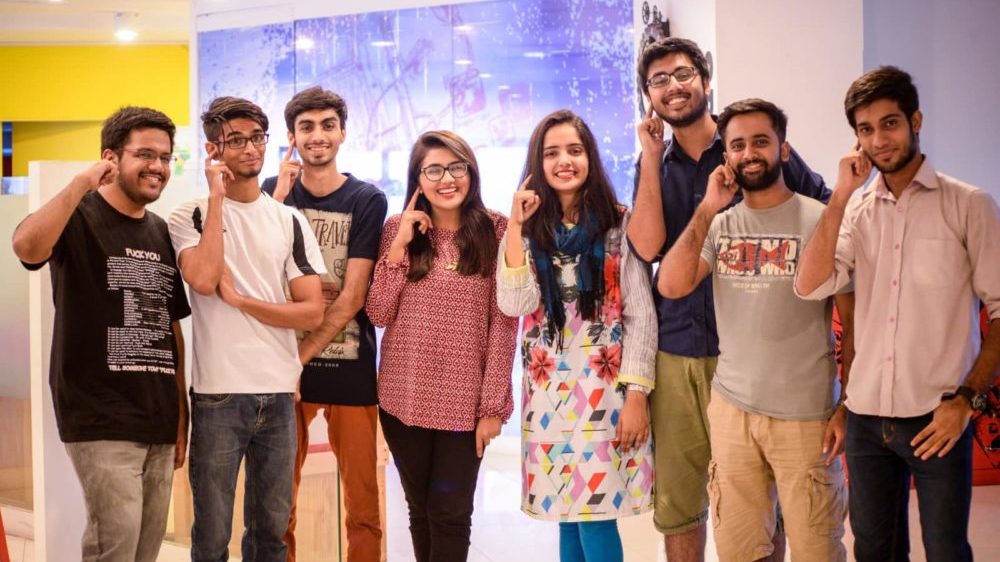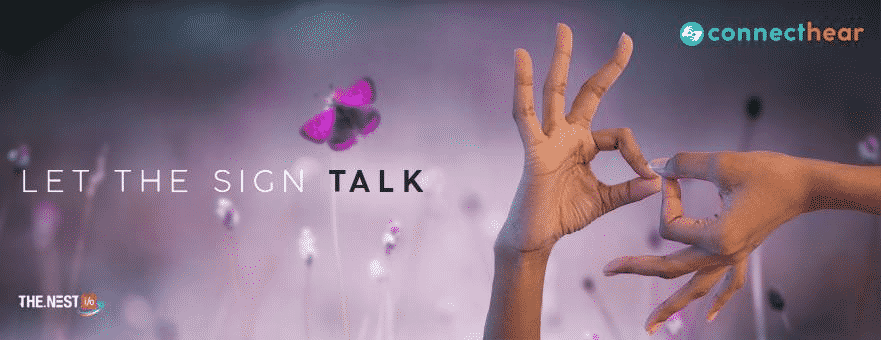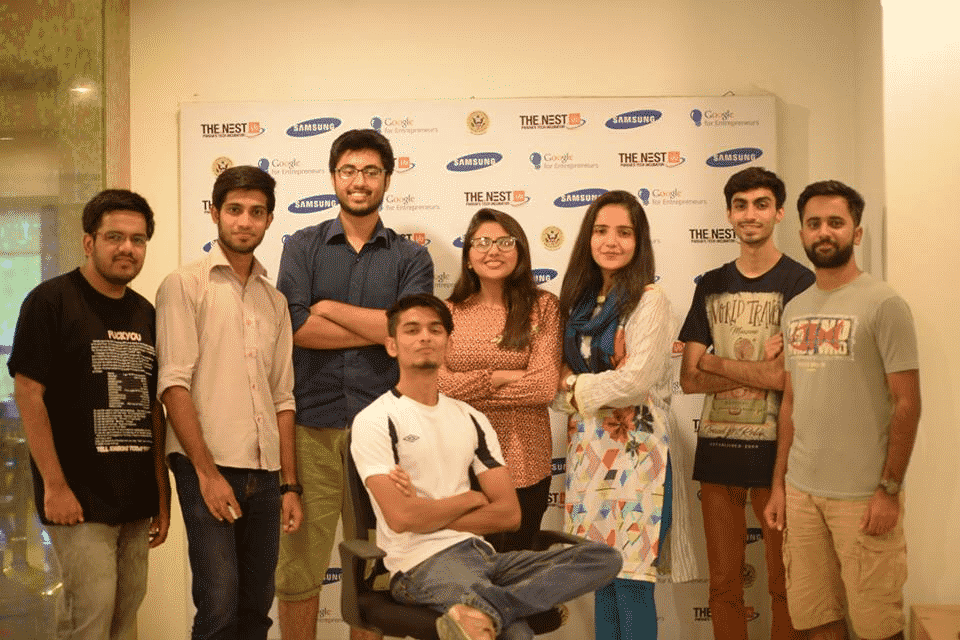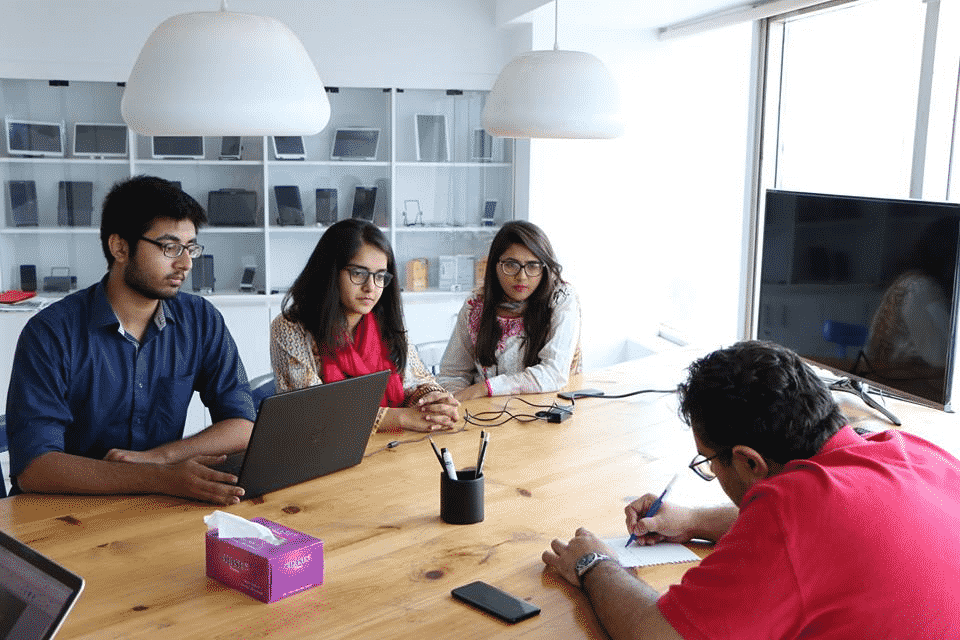The thing about entrepreneurship is that it opens the door to so many fields of life which would normally be considered niche or not exactly profitable enough for big businesses to invest into.
But entrepreneurship is about anyone working on anything they are passionate about, and that can be literally anything — from a guy teaching kids on the footpath in a makeshift slum school to a girl fulfilling her dreams by providing freelance services on the internet.
Meet Azima Dhanjee, CEO and Co-Founder of ConnectHear
Born in Pakistan, Azima Dhanjee, is a social entrepreneur and the co-founder of Connect Hear, a social entrepreneurial startup that wants to change the lives of the deaf and mute people in Pakistan.
Her parents have always encouraged her to take advantage of all the opportunities she can get. Her exposure, combined with her social skills and penchant for participation in extracurricular activities, paved the perfect pathway for doing better and bigger things — things she has always wanted to do!
Azima Dhanjee
“You see, both my parents are deaf and mute while my brother and I have no such ‘limitation’,” shares Azima. “The first time my classmates saw me communicate with my mother in sign language, they started laughing because they had never seen such a thing before. I did not understand what was so funny but I knew there was something “different” about the way I communicated with my mother.”
Before this point, her parents had never let her feel any different. Her family is like just any other family. The only difference is that she has had to use sign language to talk to her parents. However, gradually, she started to notice how life isn’t the same for her parents as it is for other people. Growing up, she also heard a lot of stories from her grandmother about the struggle her mom has had to go through.
She has also faced a lot of questions about how her family manages to live through this disability and some people have even gone as far as to ask her brother if they ever wished that their parents were not the way they are.
“Fortunately, our parents brought us up to be both affectionate and strong and so none of this ever bothered me much,” she shares. “I have always liked being the interpreter for my parents whether it be a parent-teacher meeting, a doctor’s appointment or just me translating my mother’s favorite TV shows for her. If anything, I think it has brought us all closer.”
This is what pushed her to try and create her very own startup. Having already seen the difficulty the deaf community had to face to cope up with the rest of the world, Azima knew what she had to do.
I just couldn’t process that in a world so advanced, how can a small limitation become such a big hurdle. When I was in the USA, I learned about the amazing systems they had in place to help the deaf community and I knew I could play my part in creating something like that over here.
ConnectHear
ConnectHear provides in-person as well as video-based Pakistani sign language interpretation to the deaf and mute in order to bridge the communication gap in the society. Any hearing-impaired person can avail their services and reach out to them for help.
“I joined up because I believe in the steps they are taking to bring the deaf and mute community together. I hope we keep working for the betterment of all; this is a cause to work for!” said Burhan, one of the eight people behind ConnectHear.
They regularly post videos on saying phrases in Pakistani Sign Language as a part of their teaching tutorial. This is just a part of their broader plan to educate everyone about common signs. They also plan to approach other organizations working for this cause such as KFC, which recently inaugurated an outlet in Karachi that is operated by deaf people.
Their major goal is a web-based application, which is in the works right now and will be released soon. Once ready, it will be able to convert audio into sign language, although on a pretty limited scale for now. The application would work by breaking up parts of a sentence and then converting each individual word into a sign by using a pre-saved video directory of different signs. Finally, it would connect these videos together and display it as one whole sentence in sign language.
“Working for civic causes is a social responsibility I have towards the society. As an engineering major, I believe in problem solving through technology,” shared Areej, Co-Founder, ConnectHear.
One major challenge that they face right now is educating people that words in sign language don’t come in the same order as in a natural language. For example, “Thank you for meeting me” doesn’t necessarily mean that the signs will translate to “Thank”, “you”, “for”, “meeting”, “me”, in that exact order.
“The reason I love working with ConnectHear is how it’s bridging the gap between the disabled and the able. We have alienated them in every way of life and ConnectHear can prove to take the alienation away from the society.” added Nafay, the Graphic Designer.
Another one of their long-term goals is to make an app that can convert sign language into audio — a pretty ambitious project since it would involve image recognition techniques. Such a system may be hard to make but it is indeed possible, as proven already by a Microsoft’s Kinect sensor based project.
The Team
ConnectHear may have started out as a brainchild of Azima’s, but she is in no way alone in this journey. She has been lucky enough to be joined with a great team of honest and dedicated people who are as excited and committed to helping the deaf community as she is.
From left to right, Syed Shariq Ali (Tech Intern), Mohammad Musab Khan (Tech Intern), Arhum Ishtiaq, Syed Saaduddin, Azima Dhanjee, Areej Al Medinah, Muhammad Nafay, Burhanuddin Ali Asghar
With ConnectHear, they plan to create a more inclusive society by giving the deaf community the ease to communicate with the society. Their solution? Using simple methods like video calling interpretation or an app that can convert audio to signs.
We don’t want them to struggle to achieve the luxuries and facilities of the modern era.
Azima proudly told me how, with her help, a person was able to apply for an ATM card that he was struggling to get for two years, all with just a simple video call. Such a simple task shouldn’t need to be so difficult and that’s what irks the people behind ConnectHear. The only problem here is a lack of awareness or a proper system that could make sure that life isn’t more difficult for the disabled than it needs to be.
“What prompted this was a want of being productive and helping people, so instead of wasting my holidays yet again, I decided to be a part of this startup,” said Saad regarding his decision to join ConnectHear.
Currently, ConnectHear is being incubated at Nest I/O. When asked about how the Karachi-based incubator has helped her, she said that, “Never once I thought I’d be able to achieve that much training and public attention taking my simplest idea. This place helped me to set back, research and come out with solutions.”
Her team now plans to use all that experience and knowledge and translate it into creating a better community for the deaf people in Pakistan.






























Great People : Appreciated !
Thank you so much for the encouragement! Stay connected!
I already Worked on this Idea under Supervision of Dr. Yasir Saleem, UET Lahore. You guys can contact for any technical assistance.
Hi Usman, that’s amazing. We’d love to connect and get to know more about how we can collaborate for the cause. Let us know how to get in contact with you or drop us an email at [email protected]. :)
Great Cause….. Can’t wait to learn sign language
Hey, we’re live on Facebook. Follow our Facebook page ConnectHear to learn sign language and stay connected!
salute to Syed Shariq Ali (Tech Intern), Mohammad Musab Khan (Tech Intern), Arhum Ishtiaq, Syed Saaduddin, Azima Dhanjee, Areej Al Medinah, Muhammad Nafay, Burhanuddin Ali Asghar from nation of Pakistan
Thank you so much for the encouragement! Stay connected to ConnectHear :)
Do you think the world will soon be filled with entrepreneurs?
What do you say?
https://www.quora.com/Do-you-think-the-world-will-soon-be-filled-with-entrepreneurs/answer/Kashif-Ahmed-8?srid=hyPpH
Great idea, Great work. Keep it up guys!
Azima and Team:
This is a terrific idea and has applications all over the world. Don’t just stop for Urdu: scale up and scale out. Apply to the ICT R&D Fund and I am sure Yusuf Hussain and his Ignite team will be very helpful. Move this idea to the next higher level of performance and ease of use.
We have gone through the stages where we could get our child to speak (that’s 30 years ago and that child is today one of Pakistan’s best photographers: Mobeen Ansari).
We learnt how to break up sounds into phonemes, speech processing in the brain, etc., and then the technology behind the attack and response times in sounds, to be able to make some electronic stuff at that time.
I was in a high tech industry (CTI) and had set up an R&D department and then created systems for children at that time and advised and taught parents). But the issue was always that the parents had to play a major role and most did not and we could not achieve the level of success as we wanted to. Very frustrating and my wife and I used to have tears in our eyes when the parents would not really care – specially the fathers.
Over the years, I had thought about getting people to create these type devices (your invention) many times for the International Sign Language as well as the English one. But the processing needed could not fit on a palm as it can today. Get in touch with International organisations like the Alexander Graham Bell Institute for the deaf in Washington DC, John Tracy Clinic, in LA, etc and make sure you get people excited about this product.
I would love to help in any way. Jehan Ara knows me and how to get to me.
Dream big.
Reach for the stars!
Hello Sir,
Thank you for connecting to us and motivating us to dream big. We are definitely planning to apply to the ICT R&D fund among other grants.
It’s amazing to hear how you took aid of technology in Mobeen’s case, and we hope to do the same for the thousands of people with hearing-speech impairment.
Another goal of ours is to spread awareness about the deaf culture, and more importantly, spread the right message across. We’re live on our Facebook page ConnectHear and you should definitely follow it. It’s amazing to see how strong you and your wife were, and we wish the same strength for every family.
We’d surely get in touch with you. Thank you for your support. We’re overwhelmed! :)
Best.
Yes and Areej, we need to get more sensitive about how we call the people with these and other challenges.
Deaf and Dumb, loola langra, pagal (for depression and schizophrenia), etc. These are really pejorative and demeaning.
These people are not disabled but ‘differently abled’ people.
Take your parents for example – they have brought up a person like you and your brothers better than parents who cannot even imagine the challenges that they must have faced and then also gave you this positive outlook. Look at Muniba Mazari, my heroine. She inspires everyone with her smile and actions.
So, best of luck! I will be following you on your page…